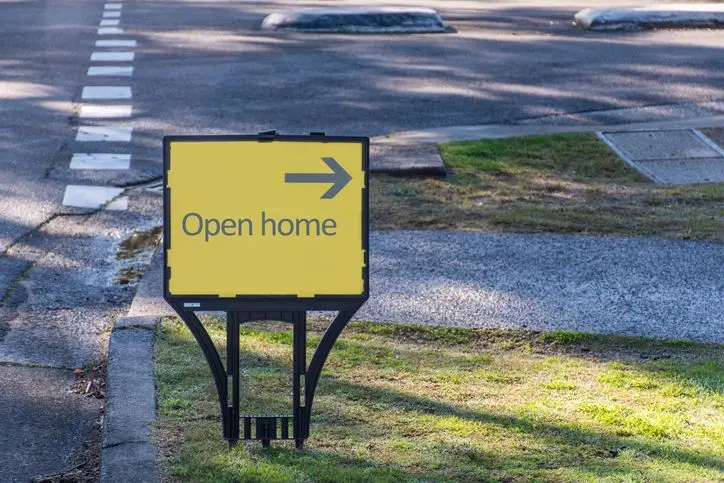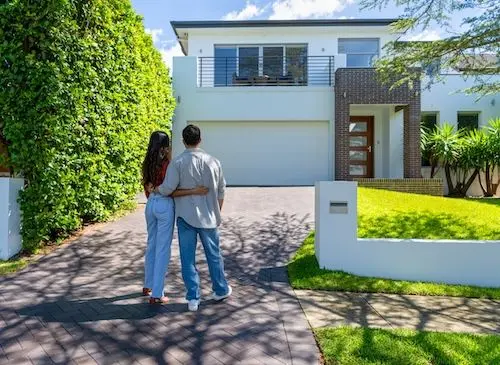
How to choose the right agent to sell your home
Finding the right agent for you can make all the difference when selling.

Thinking of selling property in Queensland? Whether you're moving, investing elsewhere, or dealing with a deceased estate, it's important to understand the local rules, legal steps, and selling strategies. The QLD property market has its own rhythm, so going in with a plan can help you save time, reduce stress, and maximise your final sale price.
Selling property comes with a few key costs. Agent commission rates in Queensland typically range from about 1.9% to 3.7%, though this depends on the agent, and your property's value and location. An agent commissions calculator can help you estimate what the fee will be in your suburb.
On top of that, you’ll need to budget for marketing, government fees, legal or conveyancing fees, professional staging (if you choose to), and potential repair costs. You can use a selling costs calculator to estimate your total out-of-pocket expenses.
Read the full guide on how to find the right agent to sell your home.

Please select your suburb from the drop down
Use our handy selling calculator to crunch the numbers and get an estimate.
In Queensland, vendors typically sell property by auction or private treaty. Chat with a local agent to determine which method suits your timeline, property type, and current market conditions.
Auctions are often used in competitive markets and can result in a quicker sale. For example, auctions are popular in inner-city Brisbane and upmarket coastal suburbs. Private treaty sales allow for more flexibility with price and conditions. It might be more suitable in regional areas or suburbs with steadier demand such as Ipswich or Logan.
Small cosmetic updates, basic repairs, and a tidy garden can go a long way. Many sellers also invest in home staging and professional photography to make their property stand out online. The better your property looks, the more buyers you're likely to attract.
Read the full guide on how to prepare your property for sale.
Whether you're selling via private treaty or auction, setting the right price for your property is critical to attracting interest and achieving a good result. Both strategies require research and input from an agent.
For private treaty sales, this means determining a competitive asking price based on local sales data, current market conditions, and your property's features. For auctions, your agent can help you set a realistic reserve price (the minimum amount you're willing to accept on the day).
Start your research by looking at recent property sales in your suburb and getting a property value estimate online. Overpricing can turn buyers away, while the right pricing strategy can lead to strong offers and a smoother sale.
An experienced real estate agent will help you choose the right strategy based on your target buyer. Marketing costs will vary depending on your property's location, target buyer, and price range.
Most sellers will look at investing in these costs:
To list your property, you’ll need a solicitor or conveyancer to draft a contract of sale.
For private treaty sales, the buyer typically gets a 5-business-day cooling-off period after signing the contract where they can change their mind, according to the Queensland Government.
The period starts the day the contract is exchanged or the following business day and ends 5 business days after at 5pm.
Properties sold at auction or on the same day as auction don’t have a cooling-off period.
Settlement in Queensland usually takes 30 days, but this can be negotiated between the buyer and the seller.
Read more on settlement and how to negotiate a settlement date.

Finding the right agent for you can make all the difference when selling.

From obvious expenses to hidden costs, get the full rundown of what's involved.

See expert predictions, and current pros and cons to help you decide.

Please select your suburb from the drop down
Remove the guesswork. Use OpenAgent to help you find, compare and shortlist the top agents in your suburb.
Selling a property in QLD? Use our tools to estimate your selling costs, agent commissions and more. Get clear, tailored insights to help you stay on top of every step and sell with confidence.

Calculate the costs involved in selling your property and budget effectively.

Pay the right commission for your suburb and maximise your sale price.

Our 7-day email course will guide you through every step of the selling journey.
If you're selling a tenanted property in QLD, there are rules around notice and inspections. You must give tenants at least 2-months written notice if you want to end the tenancy after the lease expires. If the lease is still active, the buyer will need to take over the agreement unless the tenant agrees to leave early. Refer to the Residential Tenancies Authority for full guidelines.
Capital gains tax (CGT) is a key tax consideration when selling an investment property. If you make a profit from the sale, that capital gain is considered taxable income. For example, if you buy a house for $600,000 and sell it for $700,000, then you pay tax on $100,000 at your marginal income tax rate.
If you've held the property for more than 12 months, you're usually eligible for a 50% discount (capital gains tax discount), meaning only $50,000 of the gain would be taxable. The exact amount depends on your personal tax rate and circumstances.
You may be exempt from CGT in some cases, such as if the property was your main residence for a period of time. Read more on tax for selling investment property.
If you’re selling deceased estate property in QLD, the executor or administrator must apply for a grant of probate or letters of administration from the Supreme Court. This gives you the right to sell the property. See the Queensland Government’s guide on deceased estates and speak to a solicitor to get an understanding of the legal requirements.
Once granted, the executor can proceed with listing and managing the sale. Capital gains tax (CGT) may apply if the property is sold more than two years after the date of death, though exemptions exist if it was the deceased’s main residence. We recommend engaging an accountant to help you understand the tax implications.
Selling property in QLD without an agent (known as For Sale By Owner) is legal. However, it involves handling pricing, marketing, negotiations, contracts and compliance yourself. While you’ll save on commission, most sellers find that an experienced agent adds value through experience, pricing advice, access to buyers, and negotiating skills.
Selling a home in Queensland typically involves the following:
Timeframes vary widely depending on your location, property type, market conditions, and season. For example, the median days on market (DOM) for a property in Brisbane is 30 days. However, in Autumn, it goes down to 29 days, and in Summer, it goes up to 33 days.
You can get a free property report to see what the average DOM in your suburb is. For a more accurate estimate based on all the different factors at play, speak to a local agent.
QLD doesn’t have a state-specific seller tax. However, national taxes like Capital Gains Tax (CGT) may apply if the property was an investment. Stamp duty is paid by the buyer. We always recommend speaking to a tax professional to ensure you meet all your obligations.
The choice to sell by auction or private treaty depends on your property and local market. Auctions often suit inner-city Brisbane or highly competitive areas where demand is strong. Private treaty may be more effective in regional areas or slower markets where buyers prefer more time to negotiate.
The standard cooling-off period for private property sales in Queensland is 5 business days from when the buyer signs the contract, unless they choose to waive it in writing.